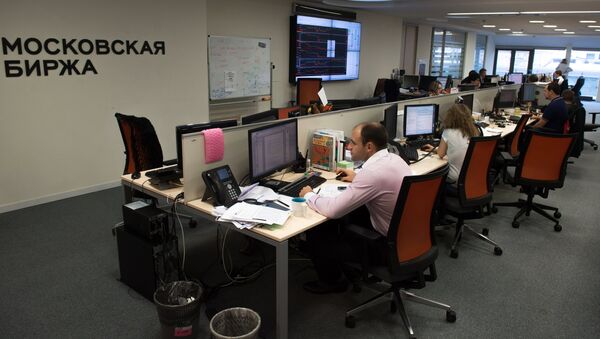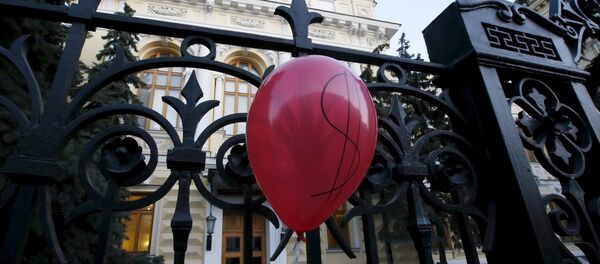According to the report, the authorities believe that the money could be used to offer financing to Russian companies that have been affected by sanctions, and have pressured banks in the EU and US not to participate.
However, the Russian Federation is not a sanctioned entity, so US or EU banks would not be breaking the law if they ignored the pressure and took part in the sale.
Officials in Russia's Finance Ministry are confident of raising the $3 billion despite the pressure; this year's bond issue is Russia's first since a $7 billion issue of Eurobonds in September 2013, a deal that was organized by a number of banks including Barclays, Royal Bank of Scotland, Deutsche Bank, Gazprombank, Renaissance Capital and VTB Capital.
The Wall Street Journal reported that Russian bonds delivered a return of 21.1 percent for investors last year, making them one of the top performers among 65 emerging countries that J.P. Morgan tracks.
The head of Russia's VTB Bank Andrei Kostin told Vesti.ru that Russian bonds remain attractive to investors despite political pressure.
"Russia's creditworthiness is not in doubt, so its sovereign bonds are a sufficiently reliable and profitable instrument for investment and there should be interest from investors," Kostin said.
"Three billion dollars is a quite a modest sum, in our opinion. Attracting that amount is possible in one issue, and in several issues of different maturities and currencies," Vishkovskiy said.
"The second initiative of the Ministry of Finance is the possibility of issuing state bonds in Chinese yuan. We are discussing the possibility of attracting investors from a new segment of the market – investors from mainland China. We propose to attract this investment using Russian infrastructure, by issuing the bonds on the Moscow Exchange," Vishkovskiy said.
Earlier this month China's Industrial and Commercial Bank (ICBC) said it has filed a request to issue the Eurobonds, to be listed on Russian and Chinese financial markets.
""We took part in the bidding contest to issue Russian Eurobonds, and we have filed a request to the [Russian] Finance Ministry," Weijie Lang, the vice president of ICBC Moscow, told reporters.




